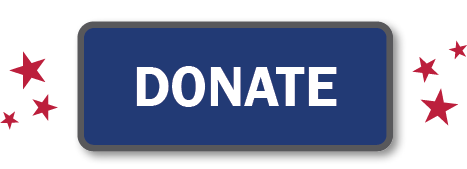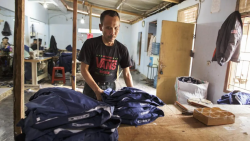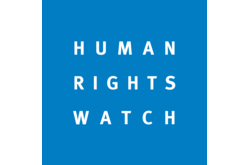Globally, an estimated 792 million people or 1 in 10, including 1 in 5 children, have a mental health condition. Yet, mental health draws only limited government attention. On average, countries spend less than 2 percent of their health budgets on mental health.
Existing mental health services are often under-utilized or do not comply with international human rights standards because of limited understanding and awareness of mental health.
Human Rights Watch found in its 2016 report, “Living in Hell: Abuses against People with Psychosocial Disabilities in Indonesia,” that thousands of Indonesians with psychosocial disabilities were shackled and many were forcibly detained in overcrowded and unsanitary institutions. The practice persisted despite a 1977 government ban on shackling because of stigma and the lack of community-based support or mental health services.
Since then, the Indonesian government has taken important steps to end the practice of shackling people with mental health conditions. But many remain locked up in institutions instead of being able to live in the community.
For more than eight years, Sodikin was locked in a tiny, thatched shed—just two meters wide—outside his family home in West Java, Indonesia. Sodikin’s family initially tried to get him medical care, but the local health center didn’t have mental health medication and the hospital was too far.
Without government services, his family felt they had no choice but to lock him up. Within this small radius of his life, lit by a solitary lightbulb, Sodikin slept, went to the bathroom, and ate food that his mother would pass to him on a plate through a window no larger than the palm of his hand. Over time, his muscles atrophied from the lack of movement.
Through the efforts of Human Rights Watch and our partner organizations, Sodikin is now again part of his community. We were able to document atrocious confinement practices across Indonesia and pressure the government to begin taking real action to end this abuse.
Once freed, Sodikin began to receive mental health support. From here Sodikin rebuilt his life. He started to work in a clothing factory stitching boys’ school uniforms—becoming the breadwinner of his family—and even did the call to prayer at his local mosque, a prestigious community role. And the shed in which he was confined for eight years? His family torched it and created a garden in its place.
Since the Covid-19 pandemic, Sodikin lives in an NGO-run rehabilitation center outside his village where he enjoys farming and helps look after people with mental health conditions, many of whom have been rescued from chains.
“People spend years locked up in chains, wooden stocks, or goat sheds because families don’t know what else to do and the government doesn’t do a good job of offering humane alternatives,” said Kriti Sharma, Senior Disability Rights Researcher at Human Rights Watch. “Sodikin and countless others deserve a life of dignity, not chains.”
Shackling persists in Indonesia to this day. But Sodikin’s story acts as both an inspiration and a goal-post for our ongoing work to stop shackling. We continue to endeavor to end this cruel practice – and all human rights abuses – every day.





